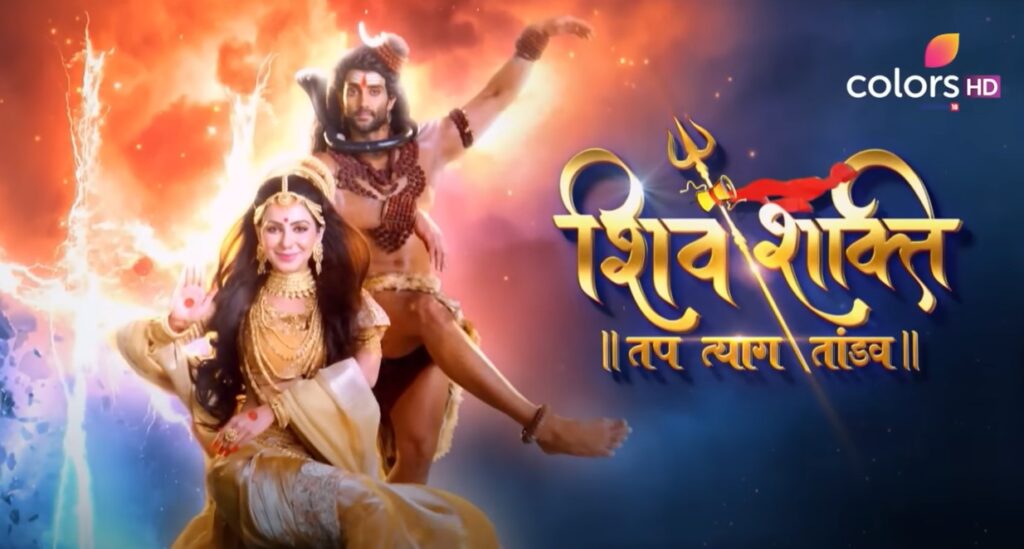
The episode begins with Kartikeya realizing the gravity of his mistakes and seeking forgiveness from Mahadev (Lord Shiv). Overwhelmed with guilt, Kartikeya kneels at his father’s feet, acknowledging how his anger and misunderstandings clouded his judgment. He tearfully admits that he never fully grasped the sacrifices Shiv made, including the unimaginable burden of having to kill his own son for the greater good of the universe. Kartikeya’s remorse is palpable as he breaks down, and Shiv, understanding his son’s pain, gestures to Parvati to comfort him. Parvati tenderly consoles Kartikeya, while Ganesh and Ashokasundari express their relief, noting the importance of Kartikeya’s realization.
Shukracharya’s Plot with the Asuras and Mahishi Clans
In a different realm, Shukracharya, the guru of the Asuras, convenes a meeting with the Asura and Mahishi clans. Curious about the sudden gathering, they ask Shukracharya about his intentions. He reveals that their victory can only be secured by Mahishasur, the powerful Asura. To locate Mahishasur, Shukracharya insists they must worship Mahadev, believing that this will reveal the demon’s whereabouts. However, Indradev and other gods, fearing the chaos Mahishasur could bring, approach Mahadev. They plead with him not to disclose Mahishasur’s location, as the Asuras would likely exploit this information to harm the gods and disrupt the cosmic balance.
Conflict Between Sagar Raj and Shukracharya
During this tense atmosphere, Sagar Raj confronts Shukracharya, accusing him of leading innocent Asuras astray for personal gains. Sagar Raj, still grieving his son’s death, blames Shukracharya’s manipulative tactics and his obsession with defeating Shiv. He begs Shukracharya to abandon his deceptive ways and stop influencing the Asuras with false promises of power. However, Shukracharya, blinded by his desire for supremacy, dismisses Sagar Raj’s pleas and continues his efforts to worship Mahadev, undeterred by the consequences.
Mahadev’s Decision and the Dual Manifestation
In response to the Asuras’ worship, Mahadev appears before the gods and emphasizes that it is Indradev’s duty to manage the Asuras. Mahadev explains that if his devotees earnestly seek Mahishasur’s location, he will reveal it, as divine duty compels him to respond to his devotees’ calls. Mahadev then performs an extraordinary act by manifesting into two separate forms. One stays with the gods, narrating the story of Mahishasur, detailing how the demon once attacked him and was subsequently banished. The second form appears before Shukracharya and discloses Mahishasur’s location. However, Mahadev sternly warns Shukracharya to guide Mahishasur towards righteousness and refrain from sending him down a path of adharma.
Indradev’s Request for Mahadev’s Trishul
Back in Kailash, Indradev, troubled by the potential threat of Mahishasur, seeks Mahadev’s powerful weapon, the Trishul. Indradev asks Mahadev for permission to use the Trishul, hoping it will help control Mahishasur. Mahadev agrees but cautions Indradev against using the Trishul for wrongful purposes. Despite the warning, Indradev harbors the intention of using the Trishul to eliminate Mahishasur, determined to neutralize any threat to the gods. However, Mahadev’s advice lingers, emphasizing the importance of upholding dharma even in the face of adversaries.
The Battle of Dharma and Adharma
The episode underscores the eternal struggle between dharma (righteousness) and adharma (unrighteousness). Kartikeya’s realization and apology mark a significant character growth, highlighting that even the most powerful deities are not immune to mistakes. Kartikeya’s journey reflects the human experience of anger, regret, and the desire for redemption. Parvati’s role as the comforting mother figure emphasizes the importance of compassion and forgiveness within the divine family, providing a counterbalance to the harsher lessons of duty and sacrifice embodied by Mahadev.
Shukracharya’s relentless pursuit of power serves as a stark contrast, depicting how ambition can cloud one’s judgment. His disregard for Sagar Raj’s heartfelt plea demonstrates the danger of unchecked pride and the consequences of manipulating others for selfish purposes. The Asuras, often portrayed as antagonists, are shown in a more nuanced light, caught between their loyalty to their leader and the consequences of his actions.
Mahadev’s dual manifestation is a pivotal moment, symbolizing the balance between punishment and mercy. His willingness to reveal Mahishasur’s location to his devotees, regardless of their intentions, showcases his commitment to dharma and the principle of free will. Mahadev’s warning to Shukracharya reflects the belief that even those on the path of adharma deserve a chance at redemption, but they must choose it themselves.
Indradev’s internal conflict with the Trishul serves as a reminder that power, when misused, can lead to one’s downfall. The Trishul, a symbol of Mahadev’s strength and authority, is not just a weapon but a test of character. Indradev’s intentions reveal the complexities of leadership and the constant temptation to take shortcuts for personal gain. However, Mahadev’s cautionary words suggest that true victory lies not in the defeat of one’s enemies but in upholding one’s principles.
Conclusion
This episode of the show intricately weaves themes of repentance, ambition, duty, and moral choices. Kartikeya’s transformation from a misunderstood son to a repentant warrior reflects the importance of self-awareness and humility. Shukracharya’s actions serve as a cautionary tale about the dangers of letting ambition cloud judgment, while Mahadev’s balanced approach to divine duty highlights the importance of staying true to one’s principles. As the gods and Asuras prepare for the next phase of their conflict, the lessons of this episode serve as a reminder that the path of dharma is never easy, but it is always the right one.